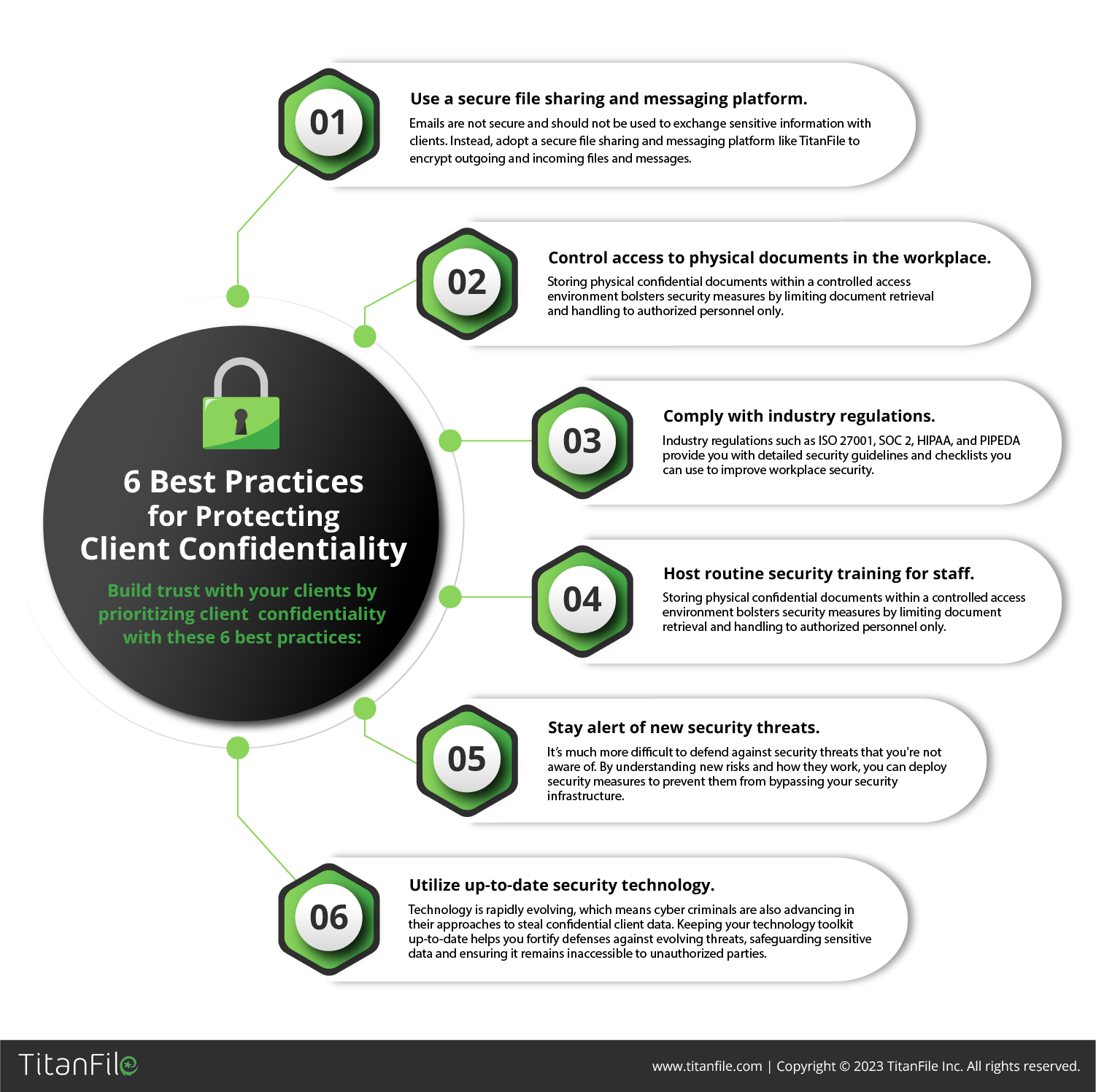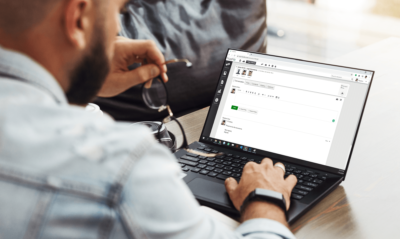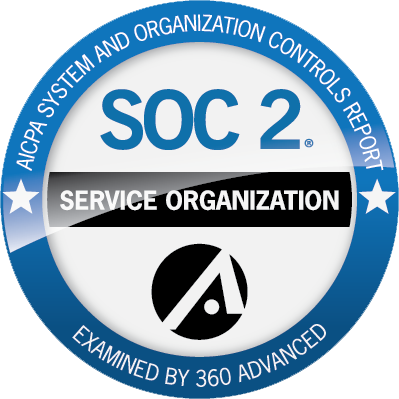
Client confidentiality is one of the most important parts of business ethics. If there so happens to be a breach, fatal consequences to your business are due to occur. Client confidentiality isn’t built on the client or the information they have shared—it is built on trust. There are professions that prioritize client confidentiality more than others, including the likes of lawyers, financial service providers, and health care workers.
Usually, maintaining confidentiality means maintaining your balance between the fast-paced and extremely demanding nature of your work. In this ever-evolving world, people must learn how to be organized, adaptive, and cautious when given the opportunity to handle client information. Nowadays, unfortunately, keeping your mouth shut isn’t the number one option for protecting your data.
What is Client Confidentiality?
Client confidentiality is a fundamental rule among institutions and individuals stating that they must not share a client’s information with a third party without the consent of the client or a legal reason. Normally, access to a client’s data is only between the workplace and the customer or client.
However, it could also be limited to law enforcement agencies—requiring legal procedures to get a hold of the information. This applies to the likes of bank accounts, medical records, and even therapy sessions. So to speak, confidential information gathered by lawyers, psychiatrists, and even priests should never be revealed to third parties.
How to Protect Client Confidentiality
1. Use a secure file-sharing and messaging platform
 Protecting client confidentiality starts inside the company—not when everything’s down in the dumps already. When it comes to sharing confidential information, regular email won’t cut it. Emails can get intercepted and accessed by unauthorized parties. To prevent this, you need to rely on encryption software to ensure that your information is actually protected while in transit and at rest.
Protecting client confidentiality starts inside the company—not when everything’s down in the dumps already. When it comes to sharing confidential information, regular email won’t cut it. Emails can get intercepted and accessed by unauthorized parties. To prevent this, you need to rely on encryption software to ensure that your information is actually protected while in transit and at rest.
By using a secure file sharing and messaging platform like TitanFile, you can mitigate the risk of an information breach by securely exchanging confidential files and messages with clients, colleagues, and outside parties. This should be the first step for companies that share a lot of information, especially if the information is sensitive.
Usually, these secure platforms are combined together with security protocols such as encryption, two-factor authentication, and storage on secured data centers. A combination of these features will ensure that you’re effectively protecting client confidentiality while sharing data.
Get a free trial of TitanFile and start sharing your files more securely.
2. Store Physical Documents in an Environment with Controlled Access
Storing physical confidential documents within a controlled access environment is critical for safeguarding sensitive information. This practice bolsters security measures by limiting document retrieval and handling to authorized personnel only. By controlling who can access these documents, the risk of theft, unauthorized viewing, or accidental exposure is significantly minimized. Additionally, such measures help maintain confidentiality, preventing potential breaches or misuse of sensitive data. Compliance with industry regulations is also facilitated, ensuring that organizations meet stringent standards for handling and storing confidential information securely, thereby avoiding legal repercussions.
Moreover, controlled access environments offer protection against physical threats such as fires, floods, or other disasters. By housing these documents in a secure setting, the risk of damage or loss due to unforeseen circumstances is reduced. Furthermore, these systems often provide detailed tracking and accountability, logging access history and enabling organizations to monitor who accessed the documents and when, creating an audit trail for added security and oversight.
3. Comply with Industry Regulations (ISO 27001, SOC-2 , HIPAA, PIPEDA)
 These four industry regulations work hand-in-hand to secure a client’s data. ISO 27001 and SOC-2 are the more foundational ordinance as they are frameworks used by all technology services or SaaS companies, entailing them to store customer data in a secure file-sharing platform to guarantee organizational controls while also practicing effective safeguarding of the privacy of the client.
These four industry regulations work hand-in-hand to secure a client’s data. ISO 27001 and SOC-2 are the more foundational ordinance as they are frameworks used by all technology services or SaaS companies, entailing them to store customer data in a secure file-sharing platform to guarantee organizational controls while also practicing effective safeguarding of the privacy of the client.
The narrative for professionals working in the healthcare, accounting, legal, or insurance industries, however, includes complying with regulations such as HIPAA and PIPEDA. HIPAA (Health Insurance Portability and Accountability Act) is mandated to protect the privacy of the patient’s information in the United States of America. It states that access to data facilities and devices is restricted. PIPEDA (Personal Information Protection and Electronic Documents Act), on the other hand, regulates the collection, usage, and disclosure of data by the private sector in for-profit or commercial activities in Canada. It appropriately designates the protection of a client’s information according to how sensitive it is. Either way, this data must be protected from breaches and any forms of unauthorized disclosures. Both acts state that organizations must be responsible for guaranteeing the protection and modernization of security measures to furthermore protect client confidentiality.
4. Host Routine Security Training for Staff
Regular security training for staff is critical to bolstering an organization’s defenses against various threats. These sessions increase awareness among employees about potential risks like phishing or malware, instilling best practices for secure data handling and password management.
Such training not only mitigates risks but also ensures compliance with industry standards, fostering a security-conscious culture within the organization. This proactive approach empowers employees to recognize and address security vulnerabilities, ultimately enhancing the overall resilience against potential threats and breaches.
5. Stay Alert of New Security Threats
Stay alert and never be too overconfident with your cybersecurity. Year after year, cybercriminals have found more and more ways to breach systems to get a hold of client information. Remain vigilant, and always keep everyone in the loop. Besides, an alert company is better than an alert individual.
Plus, the business world is becoming dependent on the digital structure. For the past couple of years, it is but imperative for organizations to stay aware of modern cybersecurity threats while also preserving power to prevent or, worse, use a response plan for attacks. Familiarizing yourself and the company with the most infamous cybersecurity issues is one of the best ways to set in motion your defense of client information. Who knows? Your radar might be the weapon that saves your company.
6. Utilize Up-to-Date Security Technology
You might think it isn’t much, but security technology serves as your first barrier of defense against breachers for client information. The likes of anti-malware and anti-virus are essential programs to protect both your company and client confidentiality. Just as much as vaccines work against viruses, these security technologies work all the same.
Organizations must keep their programs updated and, just to be sure, always scheduled for updates. However, having these tools does not guarantee a breach-free environment because let’s face it, cybercriminals are working tirelessly to perfect their methods. Let’s just hope these anti-malware and anti-virus systems work harder. Although, let us not undermine the importance of these defences. Getting them and keeping them up-to-date, while also acquiring revamped defences to your systems, are great starts and foundational pieces to protect client confidentiality.
